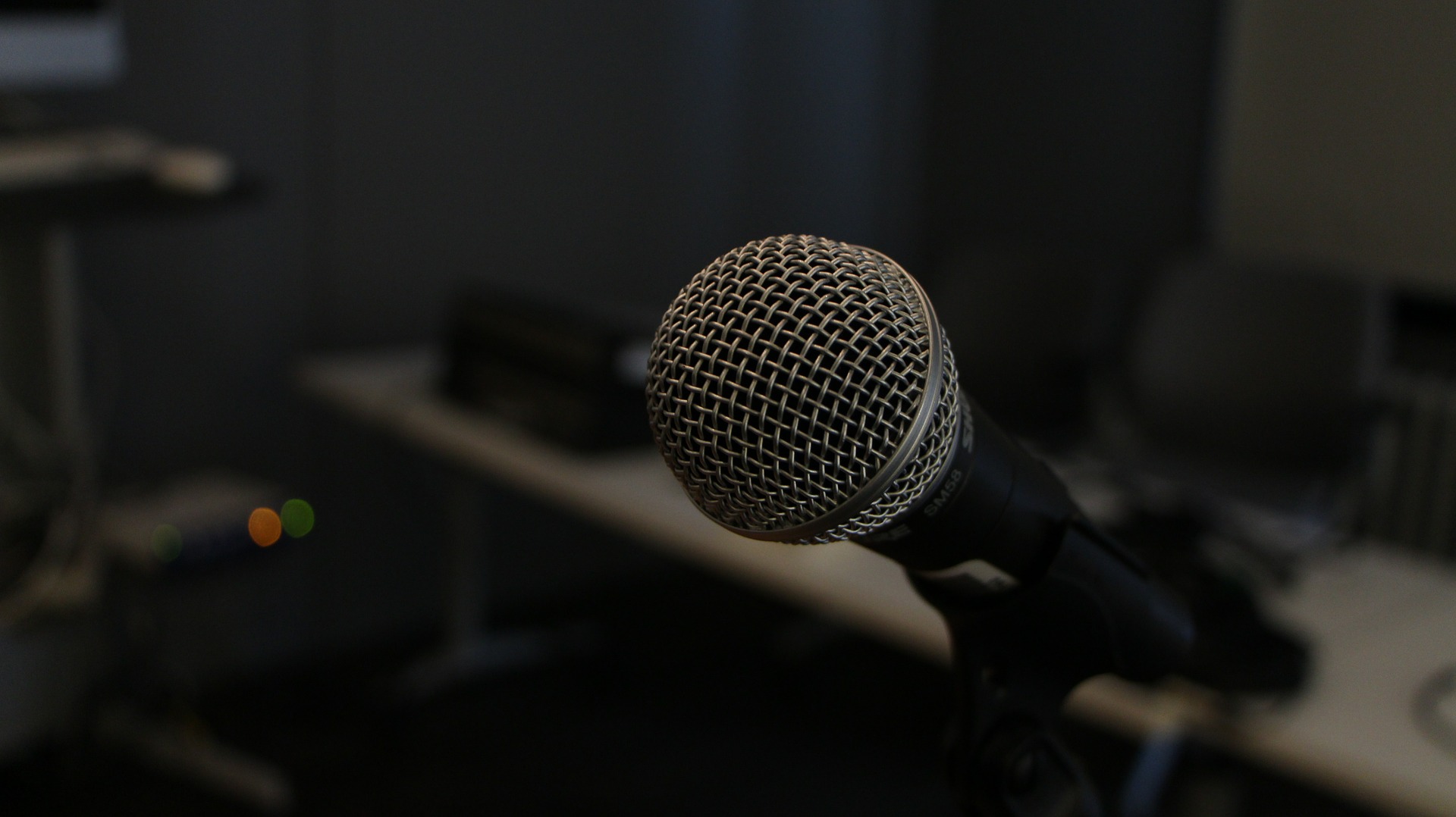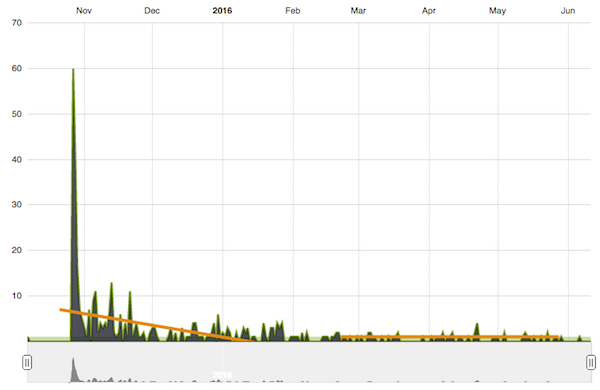Yess! You heard it right! I just completed my 100th podcast episode, and I have a lot of advice to share with new and upcoming podcasters.
But, I want you to know one thing. I’m not a natural. I have NEVER been a natural at anything.
Funny enough, the longer you do something, the more of a natural you appear. Just the other day, I had someone say to me: “Of course your podcast is doing well, you have an awesome voice! I wish I had a better voice”
People have said the same thing to me about writing, programming, speaking in public, and even sports that I’ve competed in, like Fencing.
The truth is that if you go back and look at my very first blog posts or podcast episodes, you’d never believe that this guy now has a highly popular blog and thousands of email subscribers.
What I’m saying here is that yes, these techniques I’m about to share are effective, and yes, they are proven to increase your downloads, listenership, and ultimately sales.
However, what’s even more important is believing that you’re someone who actually can successfully grow a podcast. Otherwise, you’re not going to have the motivation and emotional fortitude to keep going when the times are tough.
Let’s get started.
1. Podcasting is content marketing
Whenever I say that I’m a blogger or a podcaster, I get blank stares. The most commonly asked question at mixers, networking events, and parties is, “Huh, so you can like, make money at that?”
Podcasting is content marketing plain and simple. You’re developing a relationship with your listeners through FREE content so that you can then sell them something later.
If you’re a pure entertainer, you’re probably thinking right now”that sounds so slimey,” or “this guy doesn’t know what he’s talking about.”
False! Even if you’re an entertainer, your content is a marketing opportunity for sponsors, brands, or to get people interested in your skill or talent and get them to show up at a live show.
The only way that a podcast is NOT content marketing is if you’re purposely not earning any money by putting out the free content into the world.
Still, usually at one point or another, someone who has an audience will monetize it in SOME way to finance the production of the content. Even religious organizations ask for donations.
The first step to building a successful podcast is to see podcasting as a form of content marketing for a product, event, or service. It doesn’t have to be yours, but it will be someone’s. It’s all lead generation.
2. Podcast episodes have a short lifespan
Every single podcast that I’ve put out has a spike in downloads when it’s released and then it trails off, like I showed below.
You might think this is a no-brainer, but it’s not the same as blogging. With blogging, I can invest time into a well-written and informative article that will continue to receive lots of traffic from google years down the road.
Therefore, you’re going to have to keep putting out content if you want to maintain your audience and continue to rack up podcast downloads. This is probably why daily and frequent shows tend to climb the iTunes charts.
Like always, this isn’t true of every podcast. For example, I noticed that Seth Godin’s Startup School ranks well in the iTunes algorithm at the time of writing, even though he hasn’t put out a new episode in years.
Also, I have seen podcasters put out a defined number of episodes as a mini listening course on a particular topic. These courses are designed to continue to rack up downloads over time as they are promoted by email auto responders and the iTunes algorithm.
Despite this being true, if you’re new to podcasting, I think that you should expect to keep putting out fresh content if you really want to grow your audience and get more downloads.
3. You’re not going to make millions with sponsorships
You’re just not. On average, you can make $25-$30 per 1,000 downloads for a sponsor and maybe include 3 sponsors on a podcast episode.
This means, if you’re putting out THREE episodes a week and averaging 1,000 downloads per episode, you’d be making 3 episodes * ($30 * 3 spots) *4 weeks = $1,080 per month worth of sponsorship income.
I was reading SchoolOFPodcasting and came across this statistic.
“According to Rob Walch VP of Podcaster Relations at libsyn.com (the largest podcast media hosting company) in September of 2013 a podcast episode that has been live approximately 30 days averages 141 downloads. If you have over 3400 downloads you are in the top 10%. If you have over 9000 downloads you are in the top 5%. Lastly, if you have over 50,000 downloads per episode (again after having it live for 30 days) you are in the top 1% (this would be the Marc Maron, Adam Corrola, Jay Mohr, etc). “
So, if you’re in the top 10 percent of podcasters, you can make about $3,000 per month if you’re publishing 3 episodes per week.
To me, if you’re looking to make serious money with podcasting, it makes far more sense to use podcasting as “social proof” or to get people onto your email list, where you’re be able to deliver more value and then sell them a product or service.
But, because I’ve got questions, I have put together a guide on how I got my sponsors.
4. Invest in improving your voice
People LOVE to focus on microphones and audio equipment when they get into the podcasting game, and then they don’t spend any money or time improving the ONE instrument that matters…their voice!
I admit that it’s nerve racking to speak to another human being while it’s being recorded. You’re afraid of saying the wrong thing or coming across in the wrong way.
We also tend to think that we’re stuck with the voice that we’re born with, but it’s not so. You can improve it.
I used to sound meek, insecure, scatterbrained, and timid. Inside, I felt confident, but it was only when I played back my podcast recorded that I realized…woah…that’s not how others are perceiving me.
Most listeners are going to use your voice as a cue for:
- When they should really listen up
- How confident you are about the material
- Whether or not they can trust you
- Your attitude to the material. Are you bored or enthusiastic?
Let’s say you’re introducing a guest on your podcast and they are the foremost expert in some area. If you sound dry, bored, and don’t really take care in outlining why they are so special, no one will bother to pay attention.
But, if you introduce them properly with the right excitement, which underscores what this guest means to you and why everyone else should feel as privileged as you are to listen to them, then people’s ears will perk up.
I usually warm up my own voice for at least 10 minutes before I do a podcast, just so I get used to talking. I also like to pump myself up a bit if I’m feeling tired or off my game.
In case you’re looking to improve your voice, I had an AMAZING voice expert on my podcast to talk about just that! I’ll link to a few more tips that you can use to sound better to your listeners.
5. Your EP titles and promised results matter.
Episode titles are pretty straight forward, but what do I mean by “promised results?”
For entertaining content, think about how “clickbait content” is teased on Facebook. What is the result that this content is going to have? Is it going to make you laugh your ass of? Is it going to surprise you and blow your mind?
For educational content, how is the reader going to walk away after consuming the content? Will they now be able to do X, Y, and Z? Will they be able to copy a strategy that worked?
You’re going to increase the downloads for your podcast episodes if you identify and communicate what people will GET out of listening to them.
Of course, this isn’t true for all podcasters. There are some big name podcasters who can get people to listen to their episodes just based on the weight of their personality and image alone, but I’m talking about beginner podcasters.
When I started to focus on crafting great titles and teasing those episodes with how the listener will benefit and why they should spend 40 minutes of their day with me, my downloads increased threefold.
The titles of your podcast episodes will also affect your SEO within the iTunes search algorithm, as I’ve explained in my Podcast Marketing Guide (free).
I hope that some of these tips were helpful. Be sure to leave a comment below and link me to your podcast!!


